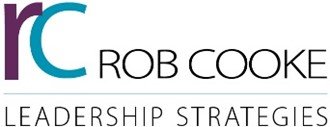
What Sets Successful CEOs Apart?
HBR May-June 2017 by Elena Lytkina Botelho, Kim Rosendoetter, Stephen Kincaid and Dina Wang
This article identifies four key behaviours that successful CEOs, and executives who aspire to be CEOs, excel at. The conclusions are based on a 10-year study that assessed over 17,000 executives. The following are the key points from the article and the research. I believe these are attributes of every successful executive.
Overview
There has been a visible disconnect between what many Boards think make for an ideal CEO and what actually leads to high performance.
Boards often gravitate towards charismatic extroverts; however, introverts are slightly more likely to surpass the expectations of their Boards and investors.
Educational pedigree (or lack thereof) in no way correlates to performance.
High confidence more than doubles a candidate’s chance of being chosen as CEO but provides no advantage in performance on the job.
Successful CEOs tend to demonstrate four specific behaviours identified below that prove critical to their performance.
The Four Behaviours
1. Deciding with Speed and Conviction
High performing CEOs do not necessarily stand out for making great decisions all the time; rather they stand out for being decisive.
They make decisions earlier, faster, and with great conviction.
Low performing CEOs decide too little, too late.
High performing CEOs understand that a wrong decision is often better than no decision at all.
Decisive CEOs recognize that they can’t wait for perfect information. They frame decisions from two perspectives: what’s the impact if I get it wrong? How much will it hold other things up if I don’t move on this?
Once a path is chosen, high performing CEOs press ahead without wavering.
Employees and other key constituents will quickly lose faith in leaders who waffle or backtrack once a decision is made.
2. Engaging for Impact
Once a clear course is set, CEOs must get buy-in among their employees and stakeholders.
High performing CEOs start by developing an astute understanding of their stakeholders’ needs and motivations and then get people on board by driving for performance and aligning them around common goals.
CEOs who engage stakeholders do not invest their energy in being liked or protecting their teams from painful decisions. In fact, both of these behaviours are seen in lower performing CEOs.
Skilled CEOs gain the support of their colleagues by instilling confidence that they will lead the team to success, even if that means making uncomfortable or unpopular moves.
The ability to handle clashing viewpoints and a willingness to engage in conflict are critical to CEO success.
When tackling contentious issues, leaders who are good at engagement give everyone a voice but not a vote. They listen and solicit views but they do not default to consensus decision making or create the illusion of democracy.
3. Adapting Proactively
Success comes from effectively dealing with situations that are not in the playbook.
Highly adaptable CEOs regularly plug into broad information flows: they scan wide networks and diverse sources of data, finding relevance in information that may initially seem unrelated.
Adaptable CEOs recognize that setbacks are an integral part of changing course and treat their mistakes as opportunities to learn and grow.
Successful CEOs offer unabashedly matter-of-fact accounts of where and why they had come up short and give examples of how they tweaked their approach to do better next time.
4. Delivering Reliably
The ability to reliably produce results was possibly the most powerful of the four essential CEO behaviours: Boards love a steady hand, and employees trust predictable leaders.
Successful CEOs all scored high on consistently following through on their commitments.
CEOs who rank high on reliability establish business management systems that include a cadence of meetings, dashboards of metrics, clear accountability, and multiple channels for monitoring performance and making rapid course correction.
Most important, they surround themselves with strong teams and move decisively to upgrade talent.
The single most common mistake of first time CEOs was not getting the right team in place quickly enough.
About Rob Cooke: Rob is a leadership advisor, strategist and coach. Drawing on a strong background in business and organizational development, Rob utilizes his extensive consulting experience to help leaders address emerging challenges, seize opportunities and execute approaches to achieve personal, leadership and business goals.
June 16, 2017 | Leadership Development
